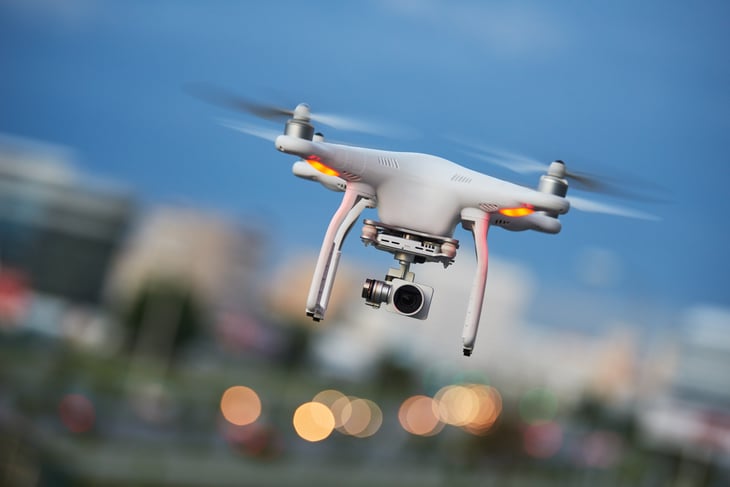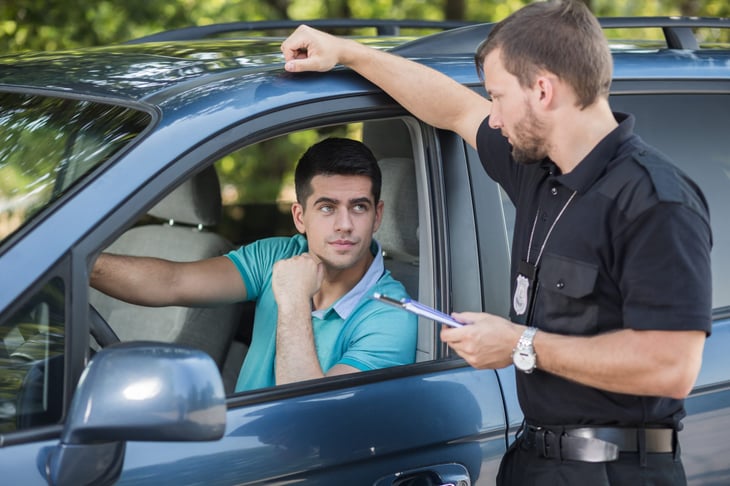
A user on the social media site Reddit recently started a wide-ranging conversation with the question, “In the United States, what should you never do?”
The discussion thread received more than 12,000 comments, including advice helpful for U.S. visitors, and even more users rated it as an interesting conversation.
Following are some answers that even folks living in America might find interesting — along with context and official sources the original users generally did not supply.
1. Fly a drone in Washington, D.C.

In general, flying a drone in controlled airspace — such as anywhere near an airport — requires official approval through a process called Low Altitude Authorization and Notification Capability (LAANC). That process is in place for more than 700 U.S. airports, but Ronald Reagan Washington National Airport is not one of them.
“The airspace around Washington, D.C., is more restricted than in any other part of the country,” and has been since the 9/11 attacks, according to the Federal Aviation Administration. Without special permission, you’re not allowed to fly anywhere within 15 miles of the airport — a radius that covers the entirety of the nation’s capital.
Violators could face “arrest, a $300 fine, and/or 90 days imprisonment and may also face additional federal civil and criminal penalties,” according to the U.S. Capitol Police.
2. Open someone else’s mail

Opening mail that belongs to anyone else could be considered one of a few different federal crimes, including:
- Obstruction of the mail generally: “Whoever knowingly and willfully obstructs or retards the passage of the mail, or any carrier or conveyance carrying the mail, shall be fined under this title or imprisoned not more than six months, or both.”
- Obstruction of correspondence: “Whoever takes any letter, postal card, or package out of any post office or any authorized depository for mail matter, or from any letter or mail carrier, or which has been in any post office or authorized depository, or in the custody of any letter or mail carrier, before it has been delivered to the person to whom it was directed, with design to obstruct the correspondence, or to pry into the business or secrets of another, or opens, secretes, embezzles, or destroys the same, shall be fined under this title or imprisoned not more than five years, or both.”
- Theft or receipt of stolen mail matter generally: “Whoever steals, takes, or abstracts, or by fraud or deception obtains, or attempts so to obtain, from or out of any mail, post office, or station thereof, letter box, mail receptacle, or any mail route or other authorized depository for mail matter, or from a letter or mail carrier, any letter, postal card, package, bag, or mail, or abstracts or removes from any such letter […] or Whoever buys, receives, or conceals, or unlawfully has in his possession […] any article or thing contained therein, which has been so stolen […] Shall be fined under this title or imprisoned not more than five years, or both.”
Fortunately, accidentally opening someone’s mail does not count, according to the Chicago-based Law Offices of Hal M. Garfinkel.
3. Leave your car during a traffic stop

It may not be illegal to exit your vehicle when you get pulled over, but the wisest thing to do is sit tight and await instructions from the police, which may or may not include getting out of your car.
The American Civil Liberties Union recommends doing the following when an officer signals you to pull over:
- Stop the car quickly but safely.
- Turn off the car, turn on the overhead light, partially lower your window and put your hands on the steering wheel or dashboard.
- When asked, present your driver’s license, insurance information and vehicle registration.
- Keep your hands visible and avoid sudden movements.
These steps should help reassure police that you are not a threat or likely to flee, which should make for a safer and smoother experience.
4. Try to bribe the police

You may have heard — or seen depicted on TV — stories about people who spend their way out of a thorny situation with the police. But since the general purpose of a bribe is to pretend something didn’t happen, it’s hard to evaluate how often they actually occur.
Regardless, this was the most popular answer in the Reddit thread:
“Don’t try to bribe cops when you get pulled over. I had some Argentinian friends immediately pull out their wallets and start pooling their cash when they got pulled over once. Fortunately someone in the car noticed and told them to put it away immediately.”
Other users claimed at least secondhand knowledge that it works in Mexico, India and even the U.S. territory of Guam.
One group that has tried to measure bribery is the nonprofit Transparency International, which claims to run “the world’s largest survey asking citizens about their direct personal experience of bribery in their daily lives, their perceptions of corruption challenges in their own countries, and their willingness to act against corruption.”
Its 2017 survey found that 1 in 4 people across the world had paid a bribe in the prior year while interacting with a public service. The countries where bribes were most commonly reported were Yemen, India, Liberia, Mexico and Vietnam. However, “bribery questions were not asked in Belgium, France, Greenland, the Netherlands, Sweden, Switzerland, the UK and the USA due to funding constraints.”
Fortunately, no funding is required to find out bribery is illegal in every U.S. jurisdiction. “Bribery is a felony in every state and under federal law,” according to Columbia Law School, which researches anti-corruption laws across the U.S.
5. Joke about shooting someone

One user offered the oddly specific but popular answer, “Under no circumstances should you say: ‘I’m going to shoot the president of the United States.’ Especially not on TV.”
The top reply to that comment was a “former news cameraman” who agreed it was a bad idea to say you’re going to shoot anyone, even when you mean “shoot video footage of” them.
Federal law does spell out “Threats against President and successors to the Presidency,” when made in writing, as a specific crime punishable by a fine or up to five years in prison.
In general, “interstate communications” that threaten the kidnapping or injury of anyone can be punished by up to 20 years in prison under federal law, to say nothing of state laws.





Add a Comment
Our Policy: We welcome relevant and respectful comments in order to foster healthy and informative discussions. All other comments may be removed. Comments with links are automatically held for moderation.